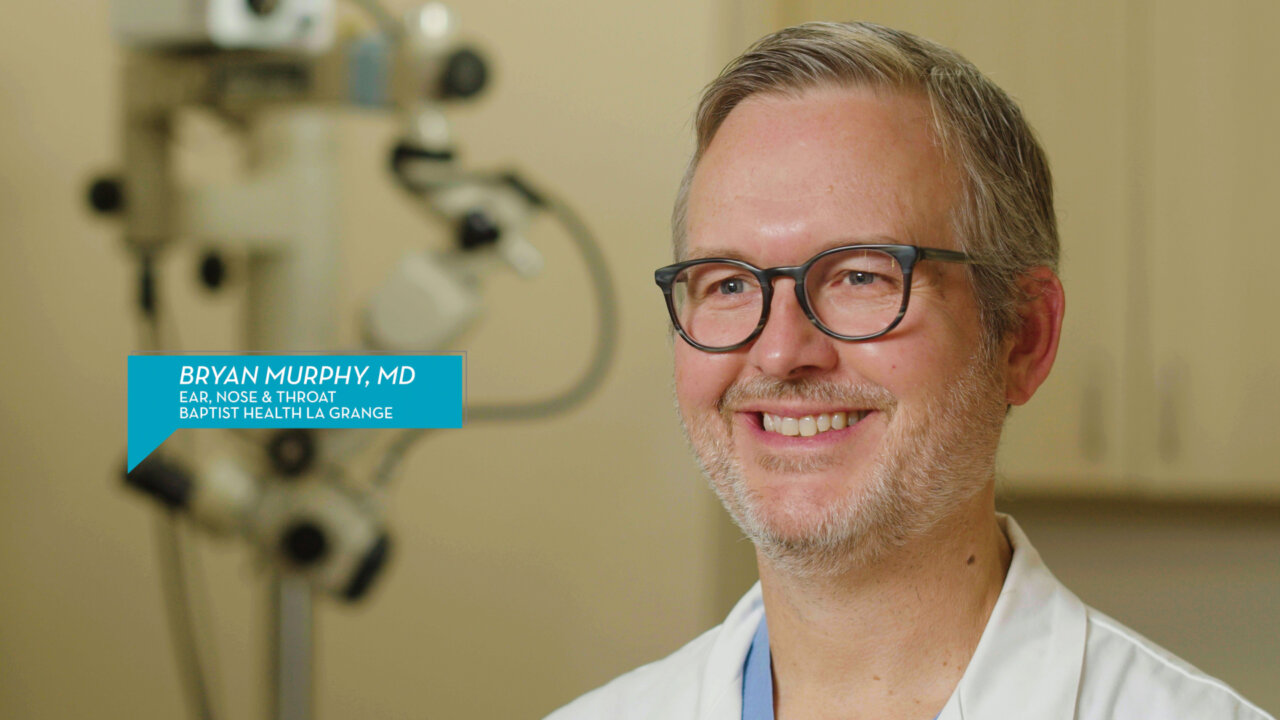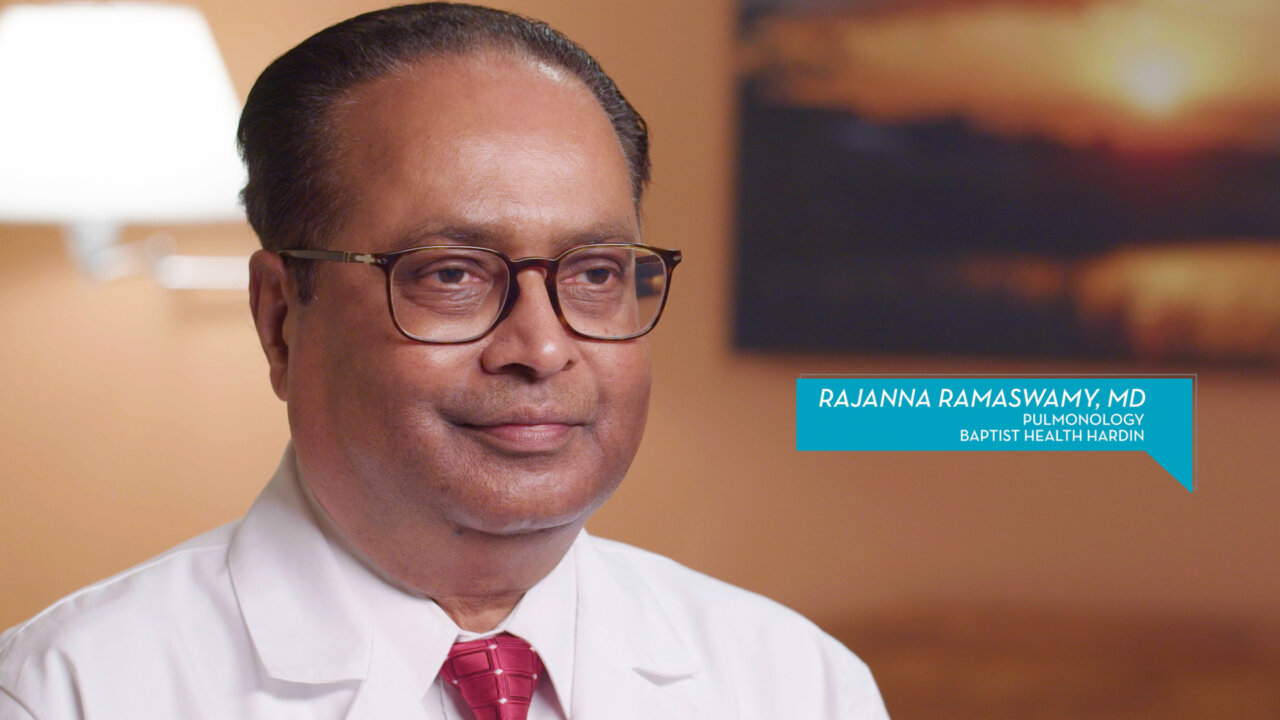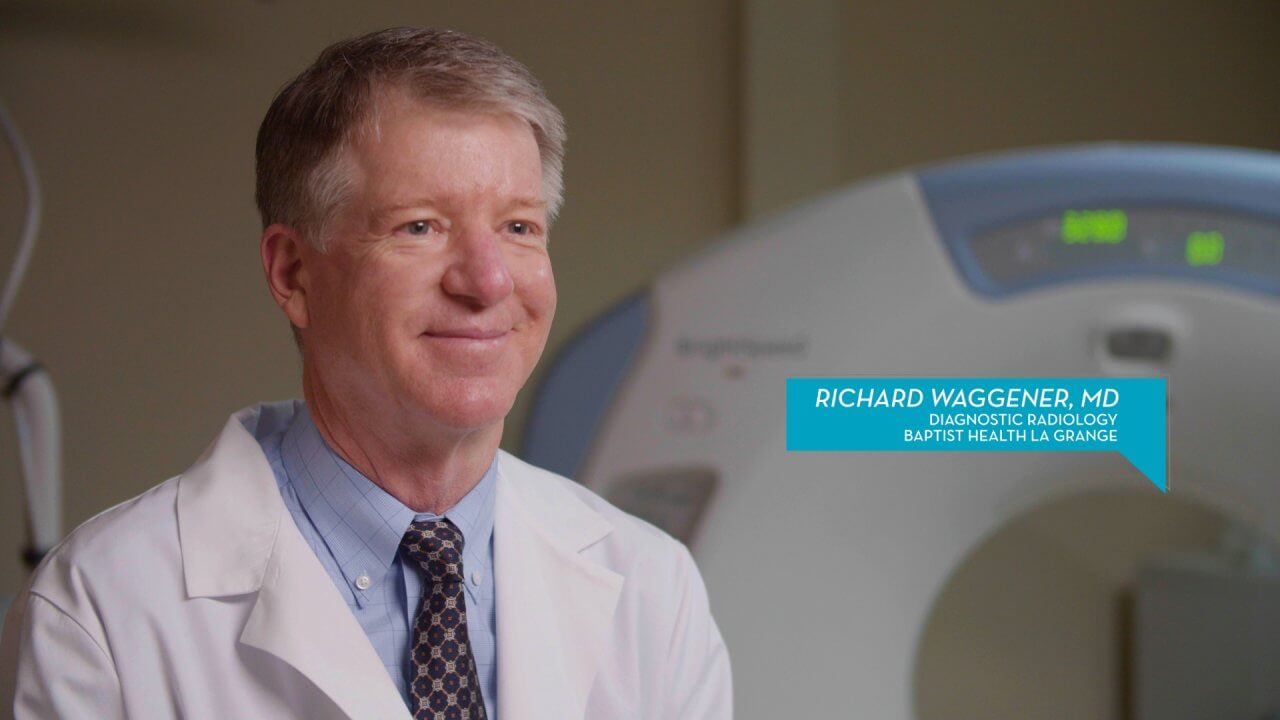Understanding Sleep Apnea
Baptist Health La Grange: Understanding Sleep Apnea
Pulmonologist Lebnan S. Saad, MD, outlines the health problems that can occur in individuals with sleep apnea and describes sleep studies and CPAP treatment.
Understanding Sleep Apnea Health Talks Transcript
Lebnan S. Saad, MD, Pulmonary Medicine
Sleep apnea is not just being tired and sleepy and snoring at night. It’s a condition that can cause a lot of other cardiovascular disorders. It’s well known to be a factor in inducing hypertension. It can increase the risk of coronary artery disease and heart attack. It can increase the chances of congestive heart failure, problems with heart rhythm. Even stroke has been attributed to untreated sleep apnea. If a person has loud snoring at night if they’ve been told by their spouse or their partner that they quit breathing at night, if they wake up gasping for breath at night, all these are strong indicators that they might suffer from sleep apnea.
When we suspect sleep apnea, we proceed with doing a sleep study that would help us diagnose it. For sleep apnea, the most commonly used treatment is the CPAP. The way it works is, it’s a device that should blow a constant pressure that would work like a pneumatic splint to splint all the soft tissue in the back of the throat and keep it open, so breathing does not get interrupted at night. The most difficult first step is just to adjust to the concept of sleeping with the mask on the face. There are different types of masks that can be used, and there’s a very good chance that, if you try different ones, you’ll get one you like, and you can easily sleep with it and be comfortable with it at night. The majority of patients like the experience they have on the CPAP. They still wish they don’t have to use it, but they have no problem with sleeping with it every night because of how much improvement they have in their sleep quality and how well they feel when they wake up the next day.



